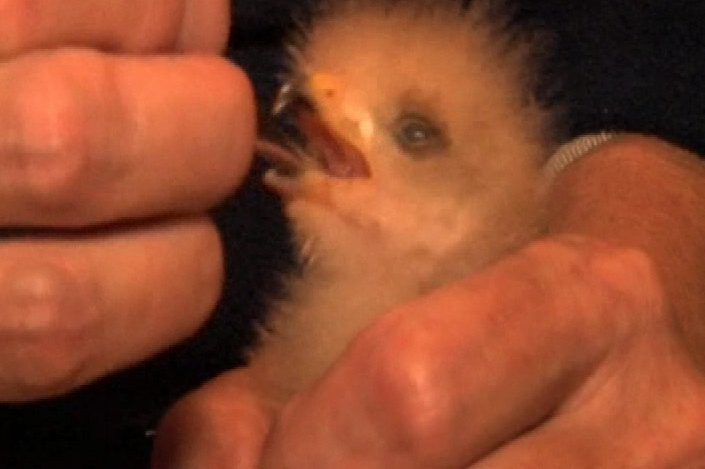
The growing season is expected to be weeks behind for many Vancouver Island crops this year and that goes for nature’s baby boom as well. From fawns to baby birds, the slow warm up and heavy rains are expected to have a noticeable impact on our wild neighbours.
With their frazzled hairdos and eager chirping, two tiny new additions to Duncan’s Pacific Northwest Raptor Centre have staff abuzz.
“If you look in here there’s two little baby Harris Hawks,”says Gillian Radcliffe, lifting the lid of an incubator.
“It’s a big moment. We all kind of freak out behind closed doors and everyone’s happy,” says Pacific Northwest Raptor Centre employee Isaac King.
They’re the first incubator hatchlings of the season and have hatched hungry.
“There’s no trouble feeding,” says Radcliffe smiling as she feeds one of the new chicks.
Then just as quickly they fall asleep.
“He’s gone sleepy now,” says Radcliffe. “See he’s getting tired. He’s gone back to sleep.”
Radcliffe says these baby birds are the lucky ones though, as they don’t have to contend with the unusually cool spring on Vancouver Island that’s also brought huge rainfall, even as birds hatch and wild babies are born.
“It may affect the hatching success but it also will very likely affect fledgling survival,” she says. “I wouldn’t be surprised if a lot of things are having a bit of a rough year of it. Because when the babies get wet they get chilled very quickly. It’s very difficult for the parents in this case to go off the nest and get food, if the babies are in downpour rain all the time and don’t dry out.”
To increase survival rates of the raptors this incubator program switches out eggs from the nesting birds, with non fertile duck eggs. Then when the chicks are good and strong, reunites them.
“Then after about 10 days once we’re sure we’ve given those babies the leg up we’ll put them back in with mom and dad, we’ll remove the surrogate eggs,” says King. “So it’s basically like nothing really happened.”
And just like that an instant family.
“It’s hard to believe right now but in 8, 9 weeks these guys will be flying,” says Radcliffe holding the tiny chicks.
A happy ending these raptor rescuers hope will also happen for the wild young now popping their heads into the world. After a long cool start to spring that’s just now showing signs of warm up.





